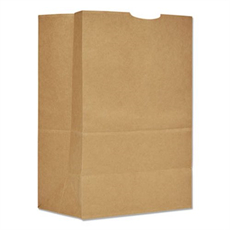The connection between plastic bags and wildlife is indeed a deadly one, as plastic bags can have devastating consequences for animals in both terrestrial and aquatic environments. Here are some of the key reasons why plastic bags pose a significant threat to wildlife:
- Ingestion: Many animals, especially marine species, mistake plastic bags for prey, such as jellyfish or other small organisms. Ingesting plastic bags can lead to serious health problems, blockages in their digestive systems, and even death.
- Entanglement: Plastic bags that end up in water bodies, like oceans and rivers, can pose a serious entanglement risk for marine animals. Sea turtles, seals, dolphins, and seabirds are particularly vulnerable to becoming ensnared in plastic bags, which can result in injury, drowning, or strangulation.
- Habitat Damage: Plastic bags that litter natural habitats can disrupt ecosystems. They can smother plants and corals, affect the growth of aquatic vegetation, and alter the behavior of animals that rely on these habitats for food and shelter.
- Toxicity: As plastic bags break down into smaller particles, they release toxic chemicals and absorb pollutants from the surrounding environment. When ingested by wildlife, these toxins can enter the food chain and harm not only individual animals but also entire ecosystems.
- Transportation: Wind and water currents can carry plastic bags from one location to another. This means that even if bags are discarded hundreds of miles from the ocean or other sensitive habitats, they can still end up posing risks to wildlife in these areas.
- Marine Debris: Plastic bags are a significant component of marine debris, which is a global problem. Large accumulations of marine debris can have serious ecological consequences and can also impact fishing and tourism industries.
- Microplastics: Over time, plastic bags break down into smaller particles known as microplastics. These tiny plastic fragments can be ingested by filter-feeding organisms, such as plankton, which form the base of the marine food web. This can lead to the bioaccumulation of plastics in the bodies of larger marine species, including those consumed by humans.
Efforts to mitigate the deadly connection between plastic bags and wildlife include:
- Implementing plastic bag bans or fees to reduce their usage.
- Promoting responsible disposal and recycling of plastic bags.
- Conducting beach cleanups and litter removal initiatives.
- Raising awareness about the environmental impacts of plastic bags through education and advocacy.
- Developing and adopting more sustainable packaging alternatives to single-use plastic bags.
By addressing the issue of plastic bags and their impact on wildlife, communities, governments, and individuals can play a role in protecting vulnerable species and preserving the health of ecosystems around the world.














